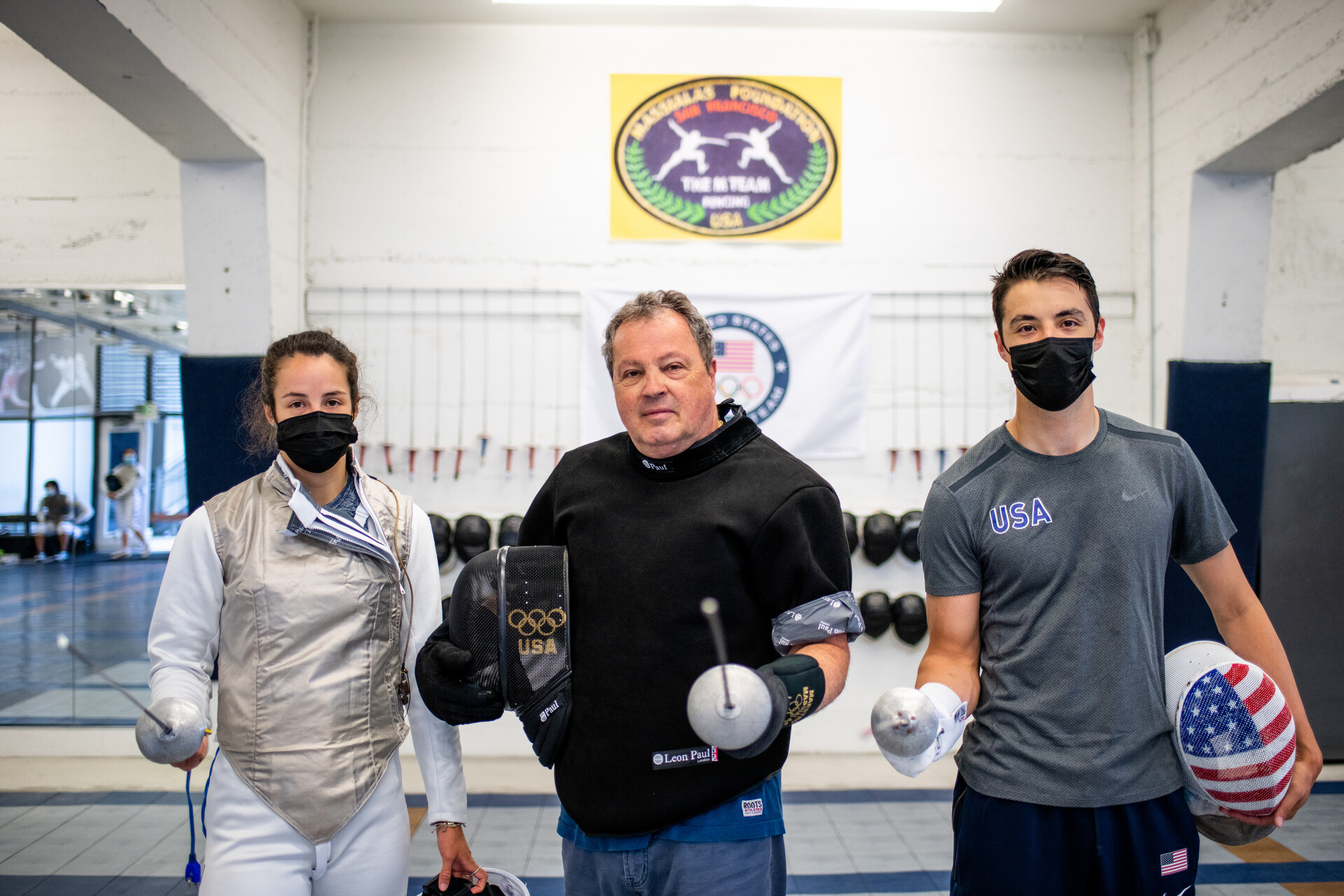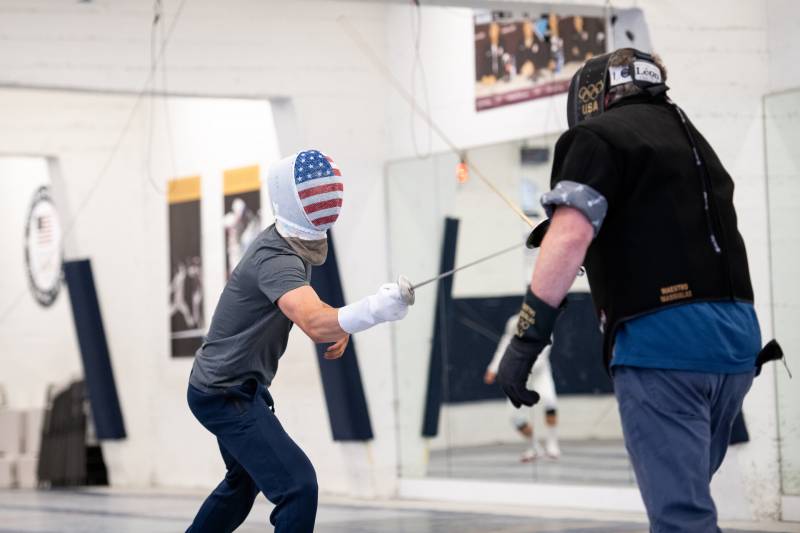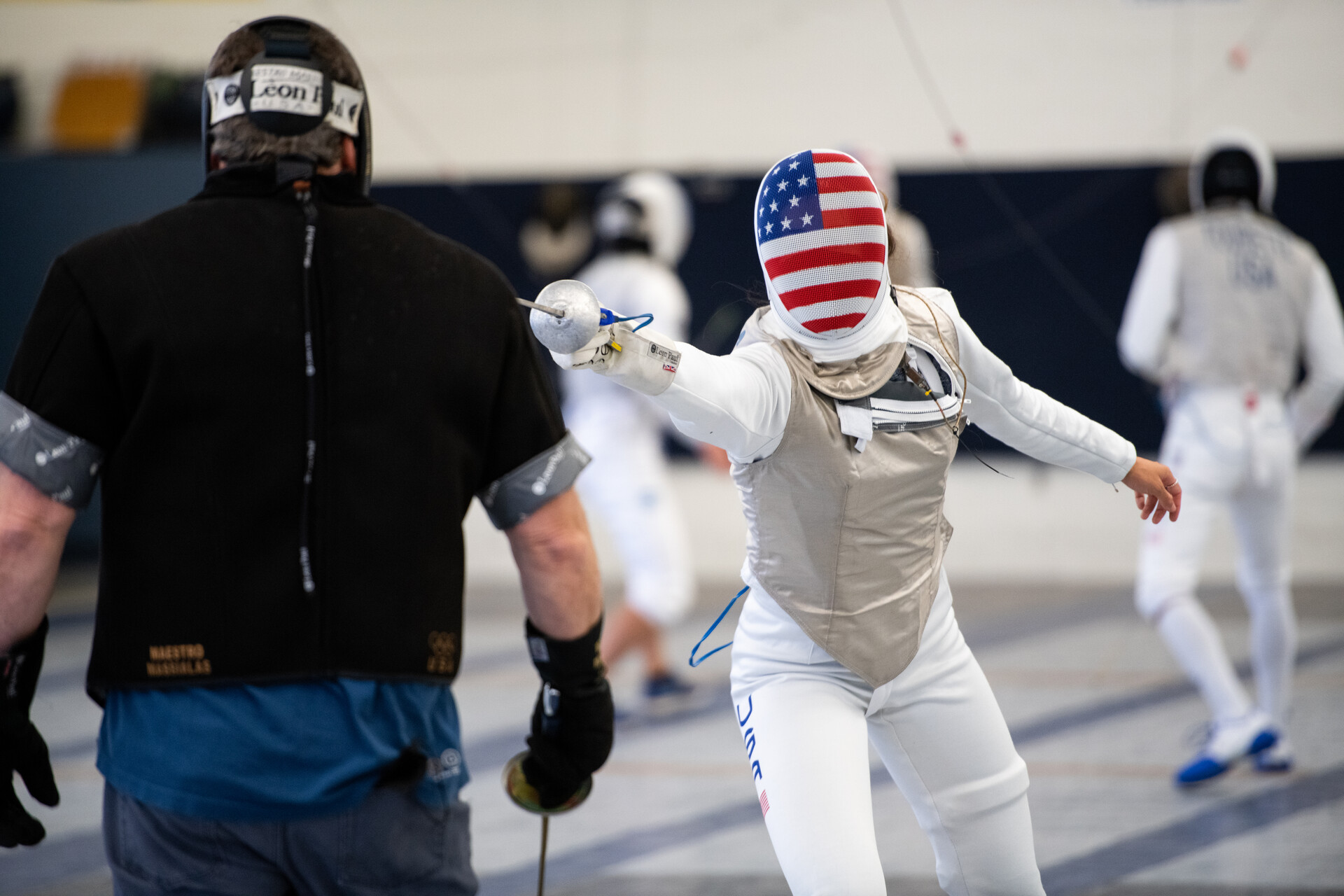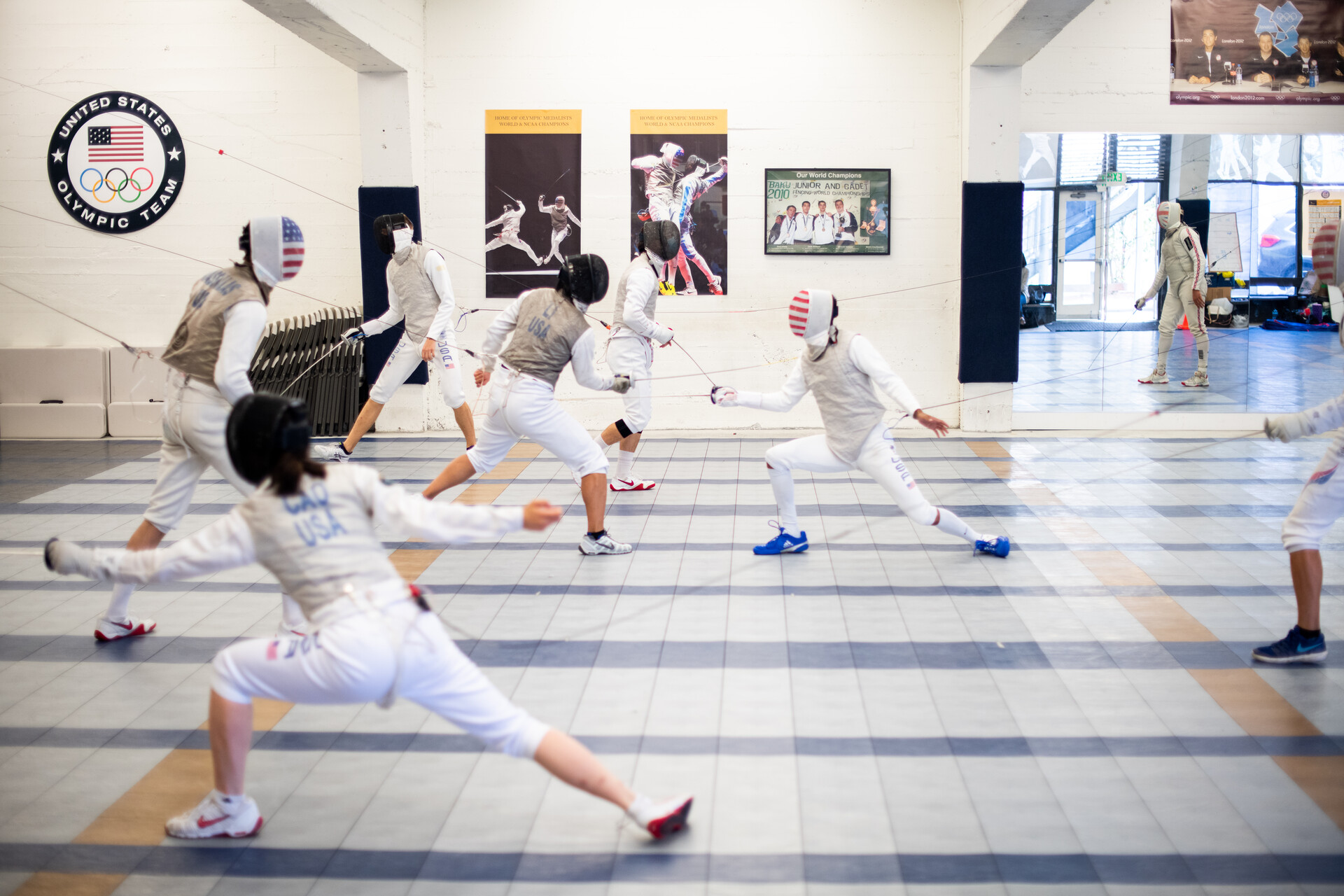Fencing and the Olympics run in the Massialas family.
Family patriarch Greg competed in the 1984 and 1988 Olympics and has passed on that experience to coach his two kids, Alexander and Sabrina. They’re all in Tokyo for this year’s Summer Games, with Alexander and Sabrina competing, and Greg serving as coach of the U.S. men’s foil team.
“The biggest thing for me is just to go through the whole process along with my sister, because this will be her first time in the Olympic Village as an athlete,” said Alexander, a three-time Olympian who the International Fencing Federation currently ranks fifth in the world in the men’s individual foil. (The U.S. ranks first overall.)

KQED’s Brian Watt met up with Alexander and Greg before they left for Japan and spoke with them from their home in San Francisco. Here are some highlights from their conversation:
Competing During a Pandemic
Alexander, 27, was the youngest male athlete to compete in the London Games in 2012. In 2016, he earned a silver medal in the Rio de Janeiro Olympics, which was the U.S.’s first individual Olympic medal in men’s fencing since 1984 and first silver since 1932.
Despite these prior experiences, this year’s games are different from the outset because of the COVID-19 pandemic.
“It drills into this idea that fencing is all about dealing with adversity,” Alexander said. “This [pandemic] is just another facet of adversity. We have to overcome fencing with a mask all year in training.”



